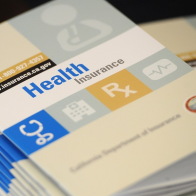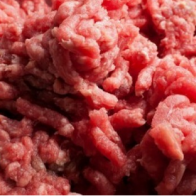 Your morning grapefruit juice is a surefire way to start a healthy day, but if you’re taking medication every day you may want to put down your glass and opt for a different juice of choice.
Your morning grapefruit juice is a surefire way to start a healthy day, but if you’re taking medication every day you may want to put down your glass and opt for a different juice of choice.
Doctors are warning patients on medication that grapefruit juice, and other citrus-based juices, can interact with your prescription resulting in series side effects including sudden death. Don’t risk it.
According to a study published in the Canadian Medical Association Journal, there are more than 85 drugs on the market that cause some kind of reaction when taken with grapefruit juice.
Citrus fruit-based products, which include a compound called furanocoumarin, interfere with the enzymes that break down medications in your digestive system, causing the medication to stay in your body longer. The increased potency of the medication in your system can lead to serious side effects. People above the ages of 45 purchase the most grapefruit juice and take the most prescription drugs and are said to be at an increased risk for mixing the toxic cocktail without being aware.
Common drugs that should not be taken with grapefruit juice include (but are not limited to):
- Cohlesteral drugs: lovastatin (Mevacor), atorvastatin (Lipitor), simvastatin (Zocor), simvastatin/ezetimibe (Vytorin)
- Antihistamines: fexofenadine (Allegra)
- Psychiatric Medications: buspirone (BuSpar), triazolam (Halcion), carbamazepine (Tegretol), diazepam (Valium), midazolam (Versed), sertraline (Zoloft)
- Immune Suppressants: cyclosporine (Neoral), tacrolimus (Prograf)
The Food and Drug Administration provides the following tips for consumers to protect themselves from grapefruit/medication interaction:
- Ask your pharmacist or other health care professional if you can have fresh grapefruit or grapefruit juice while using your medication. If you can’t, you may want to ask if you can have other juices with the medicine.
- Read the Medication Guide or patient information sheet that comes with your prescription medicine to find out if it could interact with grapefruit juice. Some may advise not to take the drug with grapefruit juice. If it’s OK to have grapefruit juice, there will be no mention of it in the guide or information sheet.
- Read the Drug Facts label on your non-prescription medicine, which will let you know if you shouldn’t have grapefruit or other fruit juices with it.
- If you must avoid grapefruit juice with your medicine, check the label of bottles of fruit juice or drinks flavored with fruit juice to make sure they don’t contain grapefruit juice.
- Seville oranges (often used to make orange marmalade) and tangelos (a cross between tangerines and grapefruit) affect the same enzyme as grapefruit juice, so avoid these fruits as well if your medicine interacts with grapefruit juice.
Do you know if any of the prescription drugs you are taking can negatively interact with grapefruit juice?






